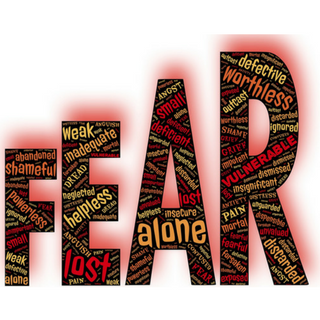Employee silence could cost a company big bucks!
Enabling employees to voice their concerns and/or ideas is crucial for high performance and innovation. Unfortunately, and unknowingly, in many companies, management continues to silence and disengage their employees.
When an employee withholds potentially critical information or concerns from those who may be able to act on that information to make it right, consciously or not, it can have serious implications for organizational performance. There is research suggesting that when faced with the choice of whether or not to raise an issue, employees often choose to remain silent.
A study of more than 1,600 individuals from 30 organizations found that 93% of people say their organization is at risk of an accident waiting to happen because people are either unwilling or unable to speak up.
That accident may be in the form of a major safety issue, or a major fraud scandal.
Yet many employees are still afraid to speak up about issues that concern the wellbeing of the company and other employees.
Employees may sweat the small stuff
We like to say don't sweat the small stuff. But small stuff might scare employees. They may be afraid to bring up the small stuff! The reason is that if they do bring up the 'little things', or day-to-day issues, they may be made to feel stupid, unimportant, or socially isolated for speaking up. However, if a climate is created where employees truly don't need to sweat the small stuff, then the organizations is more likely to hear about bigger and more serious issues.
Fear of a counterattack
If someone has previously been labeled a 'trouble-maker' employees remember this, even if the company claims to have made cultural changes. Employees will clam up if they feel that by speaking out they could get into trouble. The last thing an employee wants to deal with is the company bearing down on them like a locomotive!
Employees may fear losing their jobs
In today's climate, this is a big one. The fear of being fired for speaking up feels like an axe held over an employee's head. Being fired isn't just costly and disruptive to employees and their families, but many see it as a shameful thing which should be avoided at all costs. No wonder many employees will keep their lips sealed and not speak up so they may keep their jobs.
Nobody likes to be bullied or harassed
Many companies have had a climate of fear surrounding the concept of whistleblowing, leaving their employees choosing to keep quiet, or risk being socially outcast. In many situations, where things can quickly spiral out of control is when someone does come forward to raise a concern, it quickly turns into a debate about personalities, instead of a situation where the facts brought forward should be investigated. Focus on the serious facts is pushed to the side, and the employee is left defending their very being.
Whistleblowing needs to work if positive change and growth are to be possible:
A mechanism needs to be implemented to collect and manage reports of misconduct that are brought forward.
Those in charge need to lead by example and take responsibility for ensuring that the entire organization promotes an open and speak-up culture.
The process needs to be communicated from the top down. Management needs to ensure that all stakeholders are aware of the process and they also need to stress to all employees that they are free to come forward, anonymously or not, with any concern, and that they will never face retaliation for doing so.
A clear process must be communicated on how to handle reports that do come in anonymously, or not. Employees need to see that any report has been listened to and action has been taken, whether substantiated or not.
A small team of people needs to investigate reports that do come in. Anytime an employee comes forward, the issue must be dealt with carefully and with respect.
Finally the speak-up program needs to be graded on how it's performing. What type of concerns were raised, how were they handled, and did anything positive emerge?
It's time to make employees not fear blowing the whistle.



